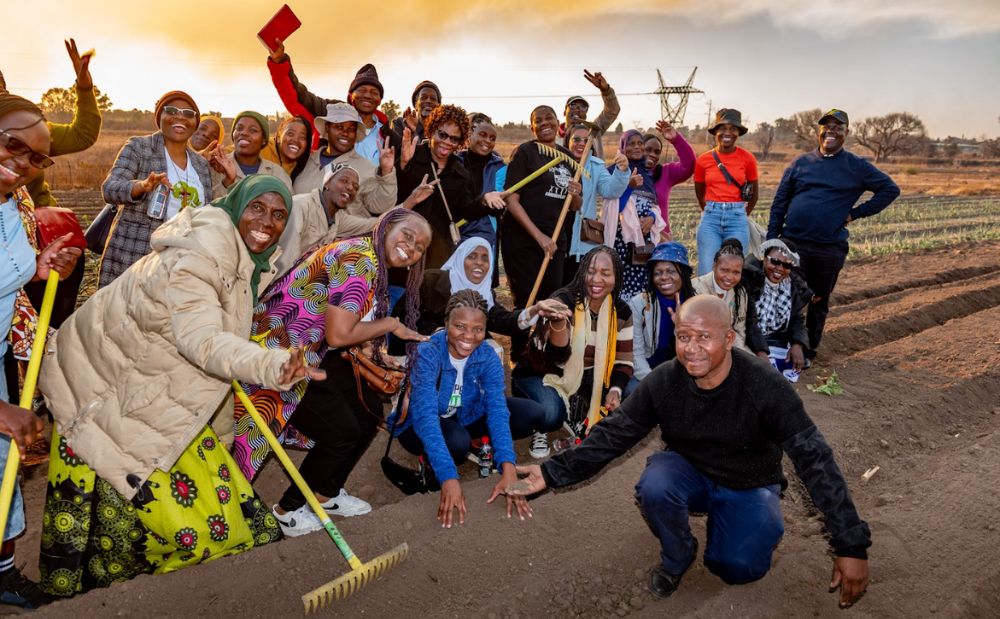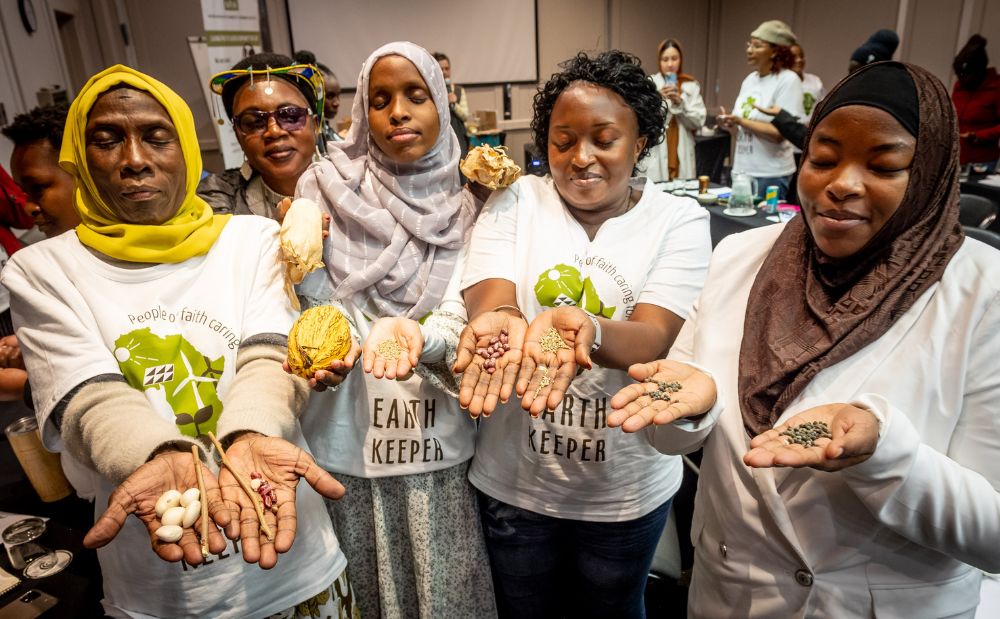Regional Women’s FLEAT in Johannesburg: Empowering Women Faith Leaders in Environmental Advocacy
- Published:

SAFCEI hosted a three-day in-person Regional Women’s Faith Leader Environmental Advocacy Training (FLEAT) in Johannesburg, South Africa, from 16 to 18 July 2024, with women faith leaders from the first and second cohorts. This workshop series brought together 33 women faith leaders representing Christian, Muslim and African Traditional faiths, from 11 countries (South Africa, Uganda, Malawi, Kenya, Botswana, Zimbabwe, Namibia, Tanzania, Swaziland, Zambia, Eswatini), underscoring the critical role women play in addressing environmental injustices and promoting eco-justice. The workshop provided a platform for participants to discuss local environmental injustices and explore solutions from faith and gender-based perspectives. Discussions emphasised the need for climate finance for Africa, the historical debt owed by the North to the South, and the significant contributions of women in their communities, recognising their roles especially in times of crisis.
On the first day of the workshop, Francesca de Gasparis, Executive Director at SAFCEI, presented on the gendered aspects of the climate crisis, stressing the importance of solidarity among women. Afikile Ndude, SAFCEI's Training Coordinator, facilitated a session where faith leaders shared "Change Stories," including eco actions and successes. Russian environmentalist and co-founder of Ecodefense, Vladimir Slivyak, also ran a session on the first day. Slivyak, a 2021 Right Livelihood Laureate, highlighted the dangers of nuclear power, including its vulnerabilities to climate change, economic and health risks, immense water consumption, prolonged construction time, and high carbon emissions from uranium mining and fuel production. He discussed the economic and political dependencies created by nuclear power, a system that was developed in the 20th century and that has no place in 21st century Africa. The day ended with an exclusive evening panel on the dangers of nuclear power, featuring esteemed panellists Makoma Lekalakala (Director of Earthlife Africa Johannesburg), Vladimir Slivyak, Francesca de Gasparis, and Melikaya Blani (from the Hlumani Nande Environmental Ambassador Group). A total of 51 participants attended the evening event, which included the regional women’s FLEAT group.
Day two featured dynamic sessions by Asanda Ngoasheng, a globally renowned speaker, diversity expert, political analyst, and academic, as well as Claire Rousell, an activist and researcher focused on the intersection of extractivism, food sovereignty, environmental justice, and art. Asanda emphasised the importance of utilising social media and radio for advocacy. Claire's session focused on the resilience of indigenous foods to climate change and the importance of policy support for indigenous food systems. Participants reflected on the significance of the seeds they shared from their respective countries and considered the relationship between indigenous food and climate change. The discussions revealed the obstacles and opportunities in leveraging indigenous food for climate resilience.
On the final day, Dr. Stephen Greenberg from the African Centre for Biodiversity discussed Just Transitions in the Southern and East African food systems. This was followed by group activities to develop future eco-justice action plans. The workshop series concluded with a tour of the Inmed South Africa Aquaponics farm in Vanderbijlpark, facilitated by Petrus Tsotetsi (Adaptive Agriculture Facilitator), which focuses on enhancing food security and sustainable income generation in communities.
The connections made and insights gained during the workshop will drive continued efforts to address environmental injustices in the region. SAFCEI remains dedicated to supporting these leaders in their mission for a sustainable and just future.

Who we are

SAFCEI (Southern African Faith Communities’ Environment Institute) is a multi-faith organisation committed to supporting faith leaders and their communities in Southern Africa to increase awareness, understanding and action on eco-justice, sustainable living and climate change.
Featured Articles
-

South Africa: Who Ends Up Paying If DMRE Cooks the Price of Nuclear Power?
-

South Africa’s nuclear energy expansion plans continue to draw criticism, environmental NGOs chew over legal challenge
-

Earthlife Africa and SAFCEI respond to latest unsettling nuclear news regarding the ministerial determination
-

Open Wing Alliance Africa (Virtual) Summit 2023
-

The Green Connection and SAFCEI respond to energy minister's divisive and deflecting comments
-

Job Vacancy: FLEAT Coordinator







